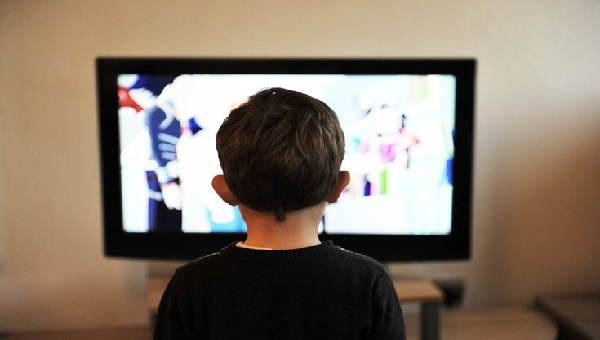Health Matters
Babies and toddlers exposed to television or video viewing may be more likely to exhibit atypical sensory behaviors, such as being disengaged and disinterested in activities, seeking more intense stimulation in an environment, or being overwhelmed by sensations like loud sounds or bright lights, according to data from researchers at Drexel’s College of Medicine.
According to the researchers, children exposed to greater TV viewing by their second birthday were more likely to develop atypical sensory processing behaviours, such as “sensation seeking” and “sensation avoiding,” as well as “low registration” – being less sensitive or slower to respond to stimuli, such as their name being called, by 33 months old.
Sensory processing skills reflect the body’s ability to respond efficiently and appropriately to information and stimuli received by its sensory systems, such as what the toddler hears, sees, touches, and tastes.
The team pulled 2011-2014 data on television or DVD-watching by babies and toddlers at 12- 18- and 24-months from the National Children’s Study of 1,471 children (50% male) nationwide.
Sensory processing outcomes were assessed at 33 months using the Infant/Toddler Sensory Profile (ITSP), a questionnaire completed by parents/caregivers, designed to give insights on how children process what they see, hear and smell, etc.
ITSP subscales examine children’s patterns of low registration, sensation seeking, such as excessively touching or smelling objects; sensory sensitivity, such as being overly upset or irritated by lights and noise; and sensation avoiding — actively trying to control their environment to avoid things like having their teeth brushed. Children score in “typical,” “high” or “low” groups based on how often they display various sensory-related behaviors. Scores were considered “typical” if they were within one standard deviation from the average of the ITSP norm.
Measurements of screen exposure at 12-months were based on caregiver responses to the question: “Does your child watch TV and/or DVDs? (yes/no),” and at 18- and 24- months based on the question: “Over the past 30 days, on average, how many hours per day did your child watch TV and/or DVDs?”
The findings suggest:
a. At 12 months, any screen exposure compared to no screen viewing was associated with a 105% greater likelihood of exhibiting “high” sensory behaviors instead of “typical” sensory behaviors related to low registration at 33 months
b. At 18 months, each additional hour of daily screen time was associated with 23% increased odds of exhibiting “high” sensory behaviors related to later sensation avoiding and low registration.
c. At 24 months, each additional hour of daily screen time was associated with a 20% increased odds of “high” sensation seeking, sensory sensitivity, and sensation avoiding at 33 months.
The researchers adjusted for age, whether the child was born prematurely, caregiver education, race/ethnicity and other factors, such as how often the child engages in play or walks with the caregiver.
The findings add to a growing list of concerning health and developmental outcomes linked to screen time in infants and toddlers, including language delay, autism spectrum disorder, behavioral issues, sleep struggles, attention problems and problem-solving delays.








